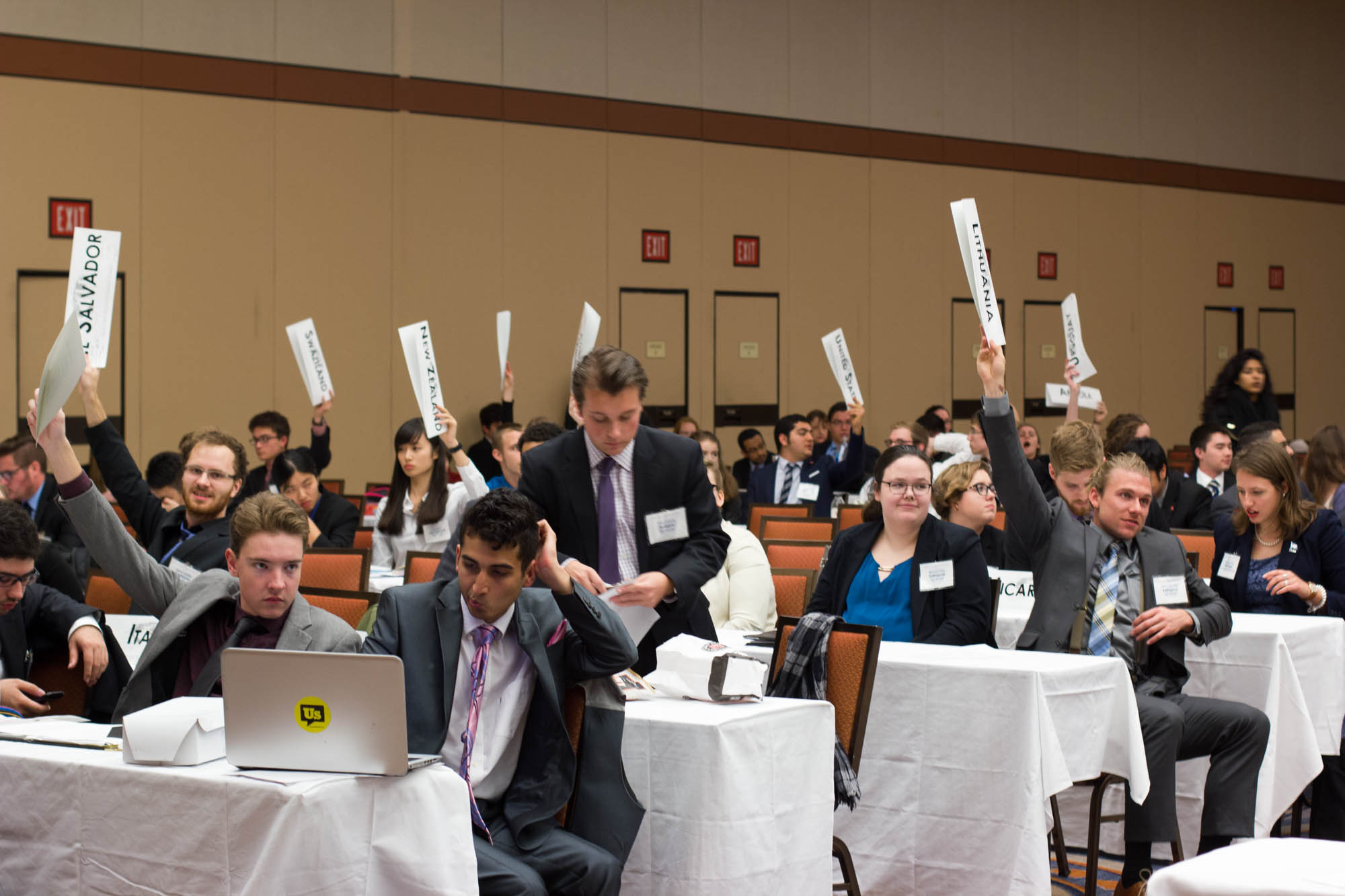
Making GA Plenary Work for You – Announcing Changes for 2017

AMUN is constantly working to create the best educational experience for our representatives. This year is no different; it is with great excitement we announce a significant change. Starting this year, we will be shortening the Combined General Assembly Plenary to Tuesday afternoon. We realize that this is a very significant change for both our staff and our representatives. Here is what to expect for AMUN 2017.
What are the changes? Why are we making them?
This year, the Combined General Assembly Plenary session will be significantly shortened. In past years, the Combined Plenary was convened during the morning and afternoon sessions on Tuesday. Starting in 2017, the Tuesday morning session will be spent in individual committees, allowing representatives more time to complete work in these bodies. Combined Plenary will be shortened to just the afternoon session; with this shortened time for the Combined GA Plenary, we expect that each committee will have time to present only one resolution. The Combined session will also hear summary report-outs from other bodies, such as this year’s Conference of the States Parties of the Organisation for the Prohibition of Chemical Weapons, that do not submit resolutions for consideration by the General Assembly.
We have made this change for a number of reasons. Over the past few years we have received a great deal of feedback from conference participants that the long Combined Plenary is not contributing to the educational experience of the Conference.
Additionally, the Combined Plenary has drifted further away from a realistic simulation of the United Nations’ work. At the United Nations in New York, virtually all substantive issues are worked out in committee and the General Assembly Plenary accepts and acknowledges the work done. Increasingly at AMUN, General Assembly Combined Plenary has been used as an opportunity to re-litigate resolutions. While this may be technically permitted at the United Nations, the regular revisiting of Committee-approved resolutions is inconsistent with a realistic simulation. After much discussion, the natural course was to shorten the time for the Plenary and lengthen the time for the individual committees, since that seems to be the most valuable time for many representatives. We believe that this change will improve the Conference and create a more valuable experience for our representatives.
How will this affect representatives?
This will affect representatives in many ways. The biggest change will be that there is more time for individual committees to work on and pass resolutions. Remember that all General Assembly committees will continue to meet on Tuesday morning and all representatives will need to be present. Be sure to get lots of rest and have a filling breakfast for a final push on Tuesday morning.
Combined Plenary’s limited time also means that each numbered committee will most likely only present one resolution to the Combined Plenary. As such, each body should work to put forth the draft resolution that their committee feels the most passionately about and that best exemplifies the committee’s work. We hope this change will also encourage representatives to work hard to build consensus and to combine resolutions so that the entire body’s work is represented in the resolutions.
What should participants do if they have questions?
As with most things conference-related you can take your questions to any Secretariat member and we will do our best to help. We can be reached on Facebook, Twitter, through the AMUN Guidebook app, and at mail@amun.org. We will be going over these changes in many different venues at AMUN 2017, so everyone should feel comfortable with the process by Tuesday.
We would like to thank all of our representatives and faculty advisors in advance for your patience as we navigate this change. This is a big adjustment for us as well and we have put a lot of thought into how to improve the experience of the combined General Assembly Plenary. We also look forward to your feedback, as we continue to improve our conference for future years.
Keep Up With The Accords
More to read
The AMUN Accords is a premier resource for fact-based Model United Nations simulations. We are always looking for new contributors. Want to write for the AMUN Accords? Check out out the submission guidelines and then get in touch!




